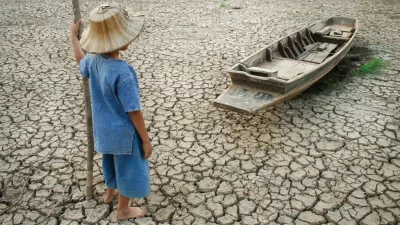Acting on Data
Discover stories from around the world about the people turning IHME evidence into health impact.Get to know our new website
We’re excited to unveil some new features that will make your search for health data faster than ever.
Long COVID is a serious health concern in Europe
Nearly 36 million Europeans – or 1 in 30 – may have experienced long COVID in the first three years of the COVID-19 pandemic, announced the World Health Organization (WHO) European regional director Dr. Hans Kluge, who cited the latest estimates by the Institute for Health Metrics and Evaluation (IHME).
Talking about OCD with IHME’s Dr. Andrew Marshall for Mental Health Awareness Month
Dr. Andrew Marshall, Lead Research Scientist at IHME, shares his experience having obsessive compulsive disorder, common misconceptions about OCD, the nuanced stigma he’s experienced around this disorder, what empathy can look like, and what advocacy can help achieve.
Professor Lalit Dandona awarded the G Parthasarathi Oration
Congratulations to IHME Professor Lalit Dandona for being awarded the G Parthasarathi Oration at the Sree Chitra Tirunal Institute for Medical Sciences and Technology (SCTIMST).
Why should we care about low back pain?
An IHME study based on the 2021 Global Burden of Disease (GBD) study found that in 2020, 619 million people suffered from lower back pain globally.
Honoring Deaf History Month: a conversation with researcher Lydia Haile about IHME’s hearing loss study
An IHME study based on the 2019 Global Burden of Disease (GBD) study found that in 2019, nearly 1.6 billion people globally were living with hearing loss.
The true cost of the great Medicaid “unwinding”
A study from IHME on health care spending shows that the cost savings of cutting Medicaid spending aren’t so simple. The August 2022 study tracked health care spending by state from 2000 to 2019 in order to understand what the main drivers of spending are and to figure out which drivers policymakers can influence.
Highlighting the work of Dr. Hmwe Hmwe Kyu and colleagues on World TB Day
In honor of World TB Day 2023, we asked IHME Assistant Professor Dr. Hmwe Hmwe Kyu to tell us more about her work on tuberculosis.
Key points from the new COVID-19 trajectory forecast
A new study from IHME forecasts what COVID infections, hospitalizations, and deaths might look like from mid-December 2022 through the end of June 2023.
11 global health issues to watch in 2023, according to IHME experts
As the year 2022 winds down, what is next on the horizon for global health? We turned to our IHME experts for their takes on the most critical health issues to watch in 2023.
IHME COVID-19 insights blog
IHME director and lead modeler Dr. Christopher J.L. Murray shares insights from our latest COVID-19 model run.
Among superbugs, MRSA is at the forefront of antimicrobial resistance
The WHO declared antimicrobial resistance (AMR) one of the top 10 threats to global health in 2019, and the urgency required to tackle this issue cannot be understated.
The world is getting older: Health systems should prepare now
Today the world’s population reached a landmark number of 8 billion. According to IHME forecasts, that number will only continue to grow in the coming years.
New report reveals nearly half of malnutrition-related deaths in those with cleft could be prevented with access to adequate treatment and support
Currently, 4.62 million persons are living with an unrepaired or inadequately repaired cleft, making them susceptible to a number of potentially life-threatening conditions and increasing their risk of malnutrition.
Introducing our course in Global Burden of Disease, now available online
IHME is excited to announce the revamped Introduction to the Global Burden of Disease training, now available online!














